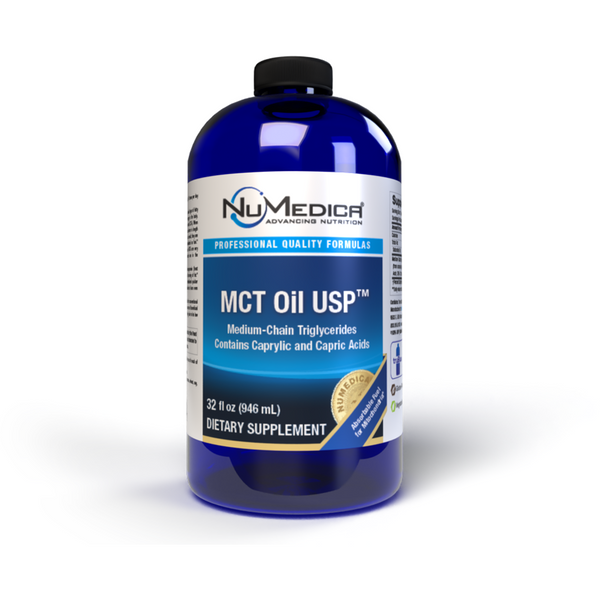
The Top Surprising Causes Of Weight Gain
Share
One of the most popular New Year’s Resolutions is to lose weight. While this is a great goal, knowing the potential causes of weight gain is key to accomplishing that goal. This article will discuss the top causes of weight gain and the best ways to shed those pounds.
#1. Food Addiction (Sugar)
Many of the foods consumed daily could trigger the brain’s reward censors in a manner like taking drugs. This is the potential case with sugar. Sugar is very sweet and highly addictive for some, creating the proverbial “sweet tooth.”
Sugar is high in calories, and excessive sugar consumption could be one of the primary causes of obesity and weight gain. One teaspoon of sugar is approximately 16 calories, while one tablespoon of sugar is around 48 calories.
According to the American Heart Association, the recommended daily sugar limits are as follows:
- Men: 9 teaspoons (150 calories)
- Women: 6 teaspoons (100 calories)
The average American eats nearly 17 teaspoons of sugar daily, more than double the recommended amount. Unbeknownst to many, sugar is hidden in many common foods:
- Canned foods
- Low-fat products, including granola bars, yogurt, salad dressings
- Fast foods
- Microwave meals
- Energy drinks, juices, and soft drinks
Sugar is also added to cigarettes: according to the FDA, the sweetener is used to reduce the harshness of cigarette smoke.
Studies indicate sugar consumption can impact the brain’s neurochemistry. This might produce symptoms often seen in addiction, including craving, tolerance, bingeing, craving, and withdrawal.[1]
Decreasing sugar consumption might help decrease the risk of weight gain. Top healthy sugar substitutes include the following:
- Raw honey
- Maple syrup
- Stevia
- Monk Fruit
Other Names for Sugar
Sugar has many names that appear on food labels. Here are the most common alternative names for sugar to watch for:
- Agave syrup
- Blackstrap molasses
- Brown sugar
- Cane syrup
- Corn syrup
- Fructose
- Glucose
- Granulated sugar
- Malt syrup
- Maltodextrin
#2. Medications
Many medications have side effects, and weight gain could be one of them. The following medications have been associated with weight gain:[2]
- Antidepressants
- Antihyperglycemics
- Antihypertensives
- Corticosteroids
- Antipsychotics
Studies on medication and weight gain note the following:
- Patients with mental health disorders are 2-3 times more likely to develop obesity than the general population.
- 80% of patients with insulin resistance are also obese. Weight gain is a common side effect of insulin.
- Short-term use of corticosteroids is not associated with changes in body weight, but long-term usage has been linked to weight gain.
Consult with your physician for any additional info on side effects and if any alternatives are available.
#3. Food Availability (Snacking)
The increased abundance of foods can increase the risk of snacking. Today, snacking accounts for 27% of children’s daily caloric intake,[3] with adult snacking increasing from 59% to 90% over the last 30 years.[4]
While snacking itself may not lead to weight gain, the type of snacks consumed can be a key factor. For example, consuming whole foods high in protein, fiber, and whole grains as snacks may increase feelings of fullness, which often reduces overeating at meals. On the other hand, junk food is high in fat and empty calories, and their consumption could increase the risk of obesity and cardiovascular disease.[5]
Here are a few notes about snacking:
- Snacking more times per day is associated with consuming more calories
- Snacking while distracted (watching movies or television) increased the probability of overconsumption[3]
- An inactive lifestyle, along with the consumption of junk food, has “contributed significantly” towards causing obesity in children and adolescents[5]
Best and Worst Snacks
Here are some of the best and worst snacks to eat and avoid:
|
Top (Healthy) Snacks |
Worst (Unhealthy) Snacks |
|
Meat sticks/jerky (no sugar) |
Soda/store-bought smoothies |
|
Dark chocolate w/almonds |
Chocolate candies/candy bars |
|
Mixed nuts |
Frosted breakfast tarts |
|
Hard-boiled eggs |
Potato chips/pretzels |
|
Protein smoothie |
Donuts |
|
Full-fat plain Greek yogurt |
Rice cakes |
|
Avocados with a little salt |
Granola bars |
|
Fat bombs |
Veggie sticks |
#4. Genetics
Studies indicate obesity and weight gain are closely linked to both environmental factors and genetics. According to the World Health Organization, approximately 39 million children under the age of 5 are overweight or obese. By 2030, it is estimated that 20% of the world's population will be obese.
Children with obese parents are more likely to become obese as well. Studies on genetics and obesity note the following factors:[6]
- A sedentary lifestyle, along with a high consumption of sugary beverages, fried foods, and bad fats (vegetable oils) in adulthood, has been linked to potentially harmful modifications in the DNA.
- Obesity in children is increased when pregnant women smoke cigarettes or are exposed to harmful environmental toxins. This is due to an increased risk of metabolic and endocrine disorders in the unborn child.
- Fathers who consume low-protein diets, exhibit early symptoms of insulin resistance, or have an excess intake of calories have been linked to obesity in their children.
- In mothers, low pre-pregnancy weight, insulin resistance, and young age have been associated with childhood obesity.
Note: While genetic factors may affect obesity rates, dietary choices can’t be ignored. The Mediterranean Diet is believed to decrease the risk of obesity and obesity-related diseases effectively.[7]
#5. Leptin Resistance
Leptin is a hormone that tells the brain when the body is full and doesn’t need any more food. It is produced by fat cells in the body and regulates how many calories are consumed, how they are burned, and how fat is turned into energy.
Preliminary studies find the more body fat a person has, the more leptin they have. On the other hand, the less body fat a person has, the lower the leptin levels in the body. This suggests a resistance to the hormone, impairing its ability to signal when the body is full. This can cause overeating.[8]
The top signs of leptin resistance include the following:
- Low energy and fatigue
- Intense food cravings (especially junk food)
- Poor sleep quality
- Irritability and mood swings
- Difficulty losing weight
- Unexplained weight gain
The following actions may help regulate leptin function:
- Decreased consumption of processed foods
- Exercising daily
- Lowering triglyceride levels
- Eating adequate amounts of protein
- Getting a full night’s sleep
Consult with a doctor if you suspect having a leptin resistance.
Top Obesity/Weight Loss Supplements
The following supplements may help with weight loss programs or to maintain a healthy weight:
Protein is a key component of weight loss. According to studies, higher protein diets improve appetite and body weight management.[9]
Amino acids are widely regarded as the “building blocks of protein.”PerfectAmino® contains the 8 amino acids the body needs to maintain and support its muscular, skeletal, and hormonal systems. This product is an excellent addition for those on an exercise or weight loss program.
Ketabo-Shake provide the body with the macronutrients it needs while following a ketogenic diet. This product is easy to digest and is critical for those who exercise or maintain an active lifestyle during ketosis.Ketabo-Shake contains organic butter and collagen protein. It is also gluten-free, non-GMO, grass-fed and paleo-friendly.
MCTs are medium-chain triglycerides that are derived from coconut oil. Instead of being stored as fat, they are broken down by the body and immediately used as energy. Other benefits of MCTs include improved digestion, helping to balance hormones, fighting off infection, and reducing brain fog.
MCT Oil is easily digested. It comes in liquid form and can be added to sauces or as a substitute for salad dressings.
Summary
There are many potential causes of weight gain and obesity. By understanding what triggers weight gain, it can be easier to determine the best ways to prevent it from happening and lose those extra pounds. Are you embarking on a weight loss journey? Share your progress and tips with us below.
References:
- James J DiNicolantonio, James H O'Keefe, William L Wilson.Sugar addiction: is it real? A narrative review Br J Sports Med. 2018 Jul;52(14):910-913. doi: 10.1136/bjsports-2017-097971. Epub 2017 Aug 23. [PMID: 28835408].https://pubmed.ncbi.nlm.nih.gov/28835408/
- Sean Wharton, Lilian Raiber, Kristin J Serodio, (et al). Medications that cause weight gain and alternatives in Canada: a narrative review. Diabetes Metab Syndr Obes. 2018; 11: 427–438. Published online 2018 Aug 21. doi: 10.2147/DMSO.S171365. [PMID: 30174450].https://www.ncbi.nlm.nih.gov/pmc/articles/PMC6109660/
- Valentine Yanchou Njike,,* Teresa M Smith, Omree Shuval, (et al). Snack Food, Satiety, and Weight. Adv Nutr. 2016 Sep; 7(5): 866–878. Published online 2016 Sep 7. doi: 10.3945/an.115.009340. [PMID: 27633103].https://www.ncbi.nlm.nih.gov/pmc/articles/PMC5015032/
- Rhonda S. Sebastian, MA, Cecilia Wilkinson Enns, MS, RDN, LN, and Joseph D. Goldman, MA. Snacking Patterns of U.S Adults -FSRG Dietary Data Briefs. NHANES 2007-2008. 2011 Jun. In: FSRG Dietary Data Briefs [Internet]. Beltsville (MD): United States Department of Agriculture (USDA); 2010-. Dietary Data Brief No. 4. Available from:https://www.ncbi.nlm.nih.gov/books/NBK589773/
- Ankul Singh S, M.Pharm., Ph.D., Dhivya Dhanasekaran, Pharm.D, Nila Ganamurali, Pharm.D, (et al). Junk food-induced obesity- a growing threat to youngsters during the pandemic. Obes Med. 2021 Sep; 26: 100364. Published online 2021 Aug 12. doi: 10.1016/j.obmed.2021.100364. [PMID: 34580647].https://www.ncbi.nlm.nih.gov/pmc/articles/PMC8459649/
- Tirthani E, Said MS, Rehman A. Genetics and Obesity. [Updated 2023 Jul 31]. In: StatPearls [Internet]. Treasure Island (FL): StatPearls Publishing; 2023 Jan-. Available from:https://www.ncbi.nlm.nih.gov/books/NBK573068/
- Santa D’Innocenzo, Carlotta Biagi, and Marcello Lanari. Obesity and the Mediterranean Diet: A Review of Evidence of the Role and Sustainability of the Mediterranean Diet. Nutrients. 2019 Jun; 11(6): 1306. Published online 2019 Jun 9. doi: 10.3390/nu11061306. [PMID: 31181836]. https://www.ncbi.nlm.nih.gov/pmc/articles/PMC6627690/
- Neira Sáinz 1, Jaione Barrenetxe 1, María J Moreno-Aliaga, (et al). Leptin resistance and diet-induced obesity: central and peripheral actions of leptin. Metabolism. 2015 Jan;64(1):35-46. doi: 10.1016/j.metabol.2014.10.015. Epub 2014 Oct 23. [PMID: 25497342].https://pubmed.ncbi.nlm.nih.gov/25497342/
- Heather J Leidy 1, Peter M Clifton 1, Arne Astrup, (et al). The role of protein in weight loss and maintenance. Am J Clin Nutr. 2015 Jun;101(6):1320S-1329S. doi: 10.3945/ajcn.114.084038. Epub 2015 Apr 29. [PMID: 25926512]. https://pubmed.ncbi.nlm.nih.gov/25926512/



